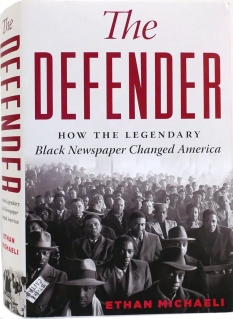"What is the Negro press? Primarily it is a protest press demanding the correction of injustice to colored people. 'We are organs of protest,' explains Thomas W. Young, publisher of the Norfolk Journal and Guide, 'born more than a hundred years ago in righteous indignation over the institution of slavery.'"
At the time of this writing, African-American representation in the press was composed of three dailies and five weeklies that were able to inform and influence the thinking of 15,000,000 readers. The combined efforts of these ink-slingers were able to sway elections in a number of the larger North-East cities, and a few in the Mid-West. Many of the concerns pursued by these papers could make even the coolest of politicians hot under the collar; indeed, FDR shunned the Negro press almost entirely - shutting it out of the White House press pool until his last year in office. By avoiding fire-breathing newspapers like The Chicago Defender, The Baltimore Afro-American and The Pittsburgh Courier, Roosevelt insulated himself from questions about what African-Americans saw as the burning issue of the 1940s: the government’s decision to embrace segregation in the military. Separating military men and women — and even the plasma in the wartime blood bank — by race. The Federal Government gave its blessing to racial segregation in the South and introduced it into parts of the country where it had been unknown before.
Click here to read about one of the much admired writers and editors in the old African-American press corps...
From Amazon:

Read this article about the Southerner who had a racial epiphany...
Click here to read about Julian Bond.